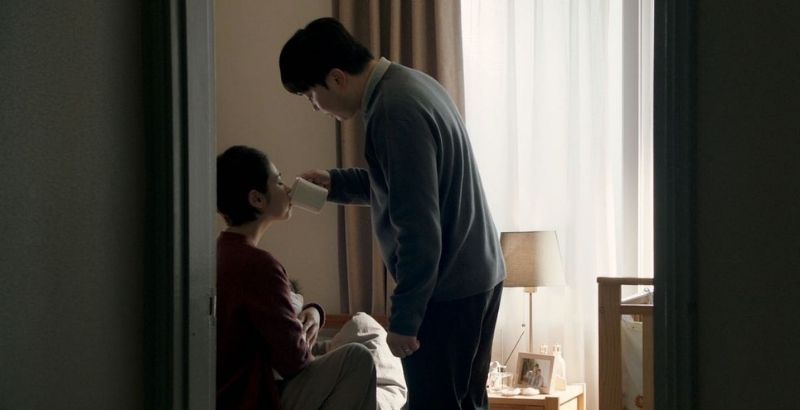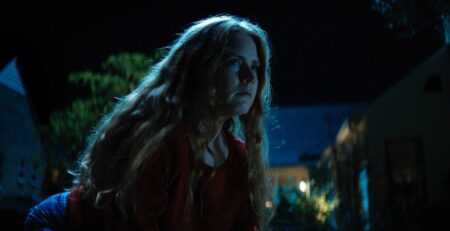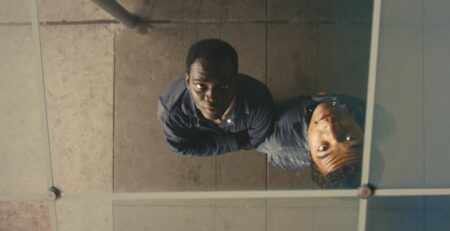
We’re used to maternal horror. Mothers bear the pain of birth, and the horror around losing their children in varied ways is often only showed through their eyes. With Seire however, we see a take on paternal horror, as a man begins to lose his grip on reality and maybe his new family. A blend of folkloric and familial horror, Seire is directed and written by Kang Park, the film stars Seo Hyun-woo and Ryu Sun-young.
Named after an old belief from Korean folklore, Seire is about a family, a taboo, and ignoring tradition. Korean tradition dictates that family members should never venture down a potentially taboo path when their child is born, lest they unleash a curse upon their household known as the titular Seire. But to Woo-jin, none of this matters. Despite following cultural traditions like hanging charms on the door to keep out evil, this is one tradition he won’t listen to – then again, he doesn’t seem to listen to his wife for anything. But when Woo-jin decides to attend the funeral of a former love, Se-young, he realizes that some traditions should be kept.
While in attendance, Woo-jin meets Ye-young, the twin of the deceased, who he did not know existed. What was a simple funeral attendance turns into a guilt trip when Ye-young shares that her sister Se-young never quite got over the break-up, with more than just their relationship breaking in the process. Mildy unnerved by the exchange, Woo-jin returns home to realize strange paranormal manifestations.
A slow-growing fear that gently and unnervingly builds on the last scare, Seire is a masterclass in slow-burning development, practical effects, and crafting a suffocating atmosphere—squeezing every bit of hope out of the viewer. Seire is intimate in scope with the sins of the past coming forward to reap what was sown, this paternal horror story manages to offer up significant scares that rely on ambiance over shock, though some moments, particularly in the film’s finale made me jump out of my seat.
Carefully built around fears of fatherhood and old loves, Seire manages to rely on folklore without overexplaining any detail for its audience. In the opening sequence, we see words on the screen explaining the film’s name. We aren’t given context nor specifics, just a warning sign for what’s about to come. Too often immersion is suffered for overexplaining cultural themes, however, Director Park trusts his audience to watch and learn from the characters on screen. At moments, this feels like you’ve been thrown in the deep end and that uncertainty helps drive the film’s confusion, which is key to Woo-jin’s descent into a certain type of madness.
While narratively, the folkloric elements are subtlely worked in like natural conversations and consequences, the film’s visuals are overt. One sequence that I can’t stop thinking about involves the newborn baby and a dead body. Both are being prepped. As the body receives funeral rites and is cleaned and dressed we jump from those shots to equivalent moments of preparing a young child to be moved. Dressing the body by crossing over the fabric of the hanbok is matched by closing the swaddling cloth, and so on and so forth. There are no words and Park’s use of silence and visuals raises the tension. Each switch between death and life offers up new small chills to run up your arm.
Seire is a beautiful example of knowing how to use small spaces, tight shots, and grounding the supernatural deeply into the interpersonal. Instead of sprawling folklore made personal, Seire is about how the opposite. It’s about how cultural customs and folktales are bolstered by what we bring into them and how they interact with us. Dark and eerie in great form, Seire is a stunner.
Seire screened at the Fantasia International Film Festival 2022.




